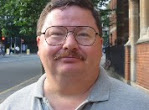Leadership In The Crucible: The Korean War battles of Twin Tunnels and Chipyong-ni -- by Kenneth Hamburger
Leadership is the keyword here.
Author Col. Kenneth Hamburger was a West Point History professor when he wrote this as both its own self-contained history lesson, and a lesson in leadership in 2003. Army administrative heroes like then Colonel Paul Freeman and French Lt. Col. Ralph Monclar were the good guys.
U.S. Army Col. Marcel Crombez, who led the armored relief column that broke the three-day siege at Chipyong-ni, received plenty of criticism for his handling of that assignment. He allowed soldiers to ride on tanks in the gauntlet fired on from both sides of the road, leading to Chipyong-ni. Not all of them made it.
Freeman was wounded in the lower leg in a mortar attack. However, he was very fortunate that he had momentarily just switched from having his head where his lower body had been on a cot in his tent.
Monclar, then 58, was one of the most experienced and decorated French war veterans in the 20th century and was a three-star general prior to going to Korea. He self-imposed his own rank reduction so he could participate in the United Nations' action against the invading communist forces. He impressed many when climbing the surrounding hills and mountains on patrol with the younger soldiers, despite his age.
The fierceness of the French was also noted in their numerous bayonet charges when ammunition ran out. They entered Korean action with a chip on their shoulders from the French army's quick collapse against the invading Germans in 1940.
Freeman rose to become one of the U.S. Army's top generals before retirement, and his eventual death at 80 in 1988. This was Monclar's last war. He died in France in 1964. Both were certainly worthy of more attention than only Hamburger's West Point cadets. Both also demonstrated genuine concern for their troops.
Monclar reached retirement age in 1952 after having served since WWI. He was wounded many times but died from heart failure in 1964 at 72. He was also a polyglot, speaking several languages. Freeman was assigned to China early in his career in the 1930s where he also seized the moment and learned to speak Chinese -- a job skill he used to interrogate battlefield prisoners. Both also believed that it was important to lead from upfront with the men.
Hamburger noted that communist troops ran, exposing themselves to heavy Allied fire and many casualties when Crombez's relief column arrived. The UN victory is credited with being decisive in halting any further communist advances toward the south.
Leadership reads easily and quickly.





